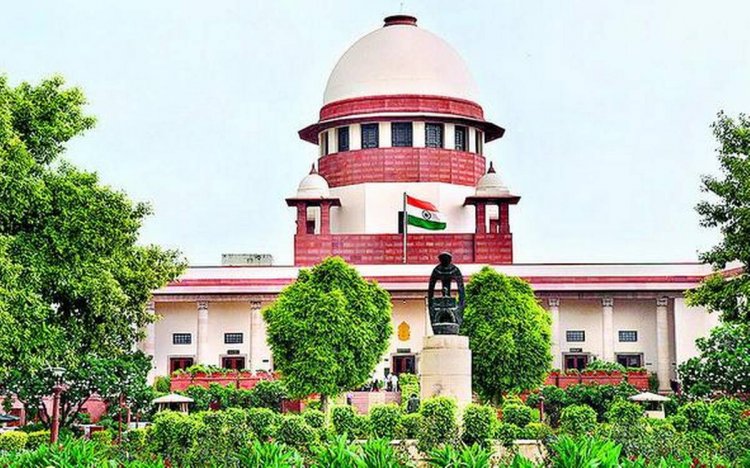Hate Speeches and Hate Crimes: Supreme Court Takes Cognisance
Asia News Agency

Hate speeches have come under judicial scrutiny, with the Supreme Court Wednesday seeking responses from the Centre and others on a public interest litigation (PIL) that wants an ‘independent, credible and impartial’ investigation into the inflammatory remarks made by speakers at last month’s ‘Dharma Sansad’ (religious assembly) in Hardwar and an event in New Delhi. The petitioners have claimed that no effective steps have been taken by the Uttarakhand and Delhi police to arrest those who targeted the Muslim community in their speeches. Another petition, filed by the Jamiat Ulama-i-Hind in the apex court, has sought a ban on anti-Muslim speeches and programmes, saying that ‘it is not just a matter of religion but of the Constitution, law, unity and integrity of the country.’
Separately, the Election Commission of India (ECI) has cautioned political parties over hate speeches and said that it is keeping tabs on social media posts.
What seems to have emboldened the hate-mongers, writes The Tribune “is the silence of the Central and state governments on the ‘genocidal’ speeches, which were also delivered at a recent conclave in Raipur, Chhattisgarh…….With the political class generally reluctant to condemn bigotry and intolerance, the courts and the ECI would have to go the extra mile to ensure exemplary action against those spreading hatred and inciting violence in the name of religion.”
Hate Inc is active
There are other aspects that keep Hate Inc active, writes Patralekha Chatterjee (social policy analyst, columnist). Last year, an app called “Sulli Deals” and now, another app called “Bulli Bai” “put on auction” prominent Muslim women who speak out against hatred. These are a brazen attempt to humiliate these women.
Some of those involved in the apps have been arrested. Investigations into the Haridwar hate speeches are on. Chatterjee notes “a few members of the ‘Sangh Parivar’ (RSS) have described the app disseminators and some of the ‘sadhus’ as ‘fringe’. But there has been no real condemnation from the top political leadership…..
“There are many more examples of hate speech. That they are made so brazenly, and with such frequency, reflects the state of India’s political landscape.”
Hate crimes are bitter harvests of fields cultivated for a century
Satish Deshpande (teaches at Delhi University) finds it surprising that the police has acted and arrested some of the alleged perpetrators when others who are involved in equally grave social crimes remain free and apparently protected by the “angry Hindu” cloak of impunity.
Deshpande writes about the significance of the uncharacteristic response to the Bulli Bai app and what does it point to or represent?
“The first thing that the anomalous arrests point to is the changing character of our institutions. If we are surprised when the police act to curb crimes — something they are supposed to do — then it is obvious that a lot has changed…..” The “long-familiar patterns of social pampering and persecution are being radically re-arranged now. The Hindu-Muslim divide is being elevated above all our other divisions, including those between victim and perpetrator, or the innocent and the guilty. Moreover, this division is being turned into a rigid dichotomy. In India, we are used to the messiness of our social categories — there are always exceptions, grey areas, or contextual variations. But the Hindu-Muslim divide is being purged of its porosity and turned into a sharp, permanent line — literally a social Line of Control. A new border is being drawn inside our nation, where, as with international borders, no ambiguity is allowed about who is on which side.” But “this is still a journey….”
Most crucially however, “the Sulli Deals and Bulli Bai apps are part of a large and ever-growing list of hate crimes that are the spontaneous initiatives of ordinary people. What we are witnessing is nothing less than the successful culmination of a nearly century-long campaign of empowerment. It is only habit that makes us think that this word should be reserved for politically correct things, like the empowerment of women.” The very young creators of the apps “are living evidence of the success of the larger campaign that has shaped the environment in which they came of age, and bequeathed to them the fantasies that they have felt emboldened to enact in real life.”
















